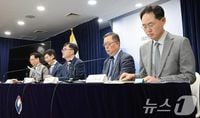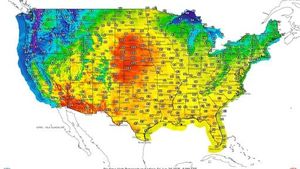On June 20, 2025, Im Gyeong-geun, the 2nd Vice Minister of Economy and Finance, held a significant briefing at the Government Seoul Complex in Jongno-gu, Seoul, unveiling the 2024 public institution management evaluation results. This annual evaluation, conducted under the Ministry of Economy and Finance's supervision, assessed the operational and financial performance of 87 public enterprises and quasi-governmental institutions across South Korea. The announcement drew attention not only for its comprehensive assessment but also for the consequential follow-up actions planned for underperforming agencies.
The evaluation process, which began in February 2025, involved a dedicated team of 100 private sector experts who meticulously reviewed the management performance of 32 public enterprises and 55 quasi-governmental institutions over four months. Their work included external verification procedures to ensure accuracy and fairness. The evaluation balanced efficiency metrics such as financial soundness and productivity with public responsibilities, including social accountability and the execution of government policies like price and housing stability.
Notably, no institution achieved the highest "superior" (S) grade this year, continuing a trend from the previous year. According to Im Gyeong-geun, "An S grade requires perfection in all aspects including major projects, management performance, and social responsibility," emphasizing the high standards expected of public institutions. He expressed hope that future evaluations would see institutions fully meeting their roles to attain this coveted grade.
Of the 87 institutions evaluated, 15 earned the "excellent" (A) grade, a steady number compared to the previous year. Among these were five public enterprises such as Korea Hydro & Nuclear Power and Korea Electric Power Corporation (KEPCO), along with ten quasi-governmental institutions including the National Health Insurance Service and the National Pension Service. Gwak Chae-gi, head of the Public Enterprise Evaluation Team, highlighted KEPCO's positive financial improvements last year and credited the overseas projects of energy sector public enterprises as "a significant innovative factor" in this year's evaluation.
Meanwhile, 28 institutions received a "good" (B) grade, including Korea Gas Corporation and Korea Expressway Corporation, while 31 institutions were rated "ordinary" (C), such as Kangwon Land, Incheon International Airport Corporation, and Korea Racing Authority. The evaluation also identified 13 institutions with "poor" (D) or "very poor" (E) grades, signaling serious performance concerns.
Four institutions—Korea Mine Rehabilitation and Mineral Resources Corporation, Korea Tourism Organization, Korea Environment Industry & Technology Institute, and the Korea Post Financial Development Institute—were assigned the lowest "very poor" (E) rating. Gwak Chae-gi explained that Korea Mine Rehabilitation and Mineral Resources Corporation's core projects, focused on resource security and regional self-reliance in mining areas, suffered from ineffective financial recovery management. Similarly, Kim Chun-soon, head of the Quasi-Governmental Institution Evaluation Team, pointed to leadership deficiencies at the Korea Tourism Organization as a factor in its declining scores. The Korea Environment Industry & Technology Institute faced additional challenges, with its head suspended and arrested amid allegations of research fund misuse, particularly regarding personnel expenses, and a lack of proactive response or concrete corrective plans.
Among the nine institutions receiving a "poor" (D) grade were prominent names like the Housing & Urban Guarantee Corporation (HUG), Grand Korea Leisure (GKL), and the Korea Broadcasting Advertising Corporation (KOBACO). The government plans to recommend the dismissal of HUG's President Yoo Byung-tae, who has received a "poor" grade for two consecutive years, fulfilling the criteria for such action. In addition, 14 institution heads and three standing auditors will face formal warnings for their institutions' underperformance.
Warnings are not limited to poor management alone. Ten institution heads are slated to receive warnings due to major accidents, including fatalities, occurring within their organizations. These include leaders from Korea National Railway, Korea Highway Corporation, KEPCO, Korea Hydro & Nuclear Power, Korea Land & Housing Corporation, and others. The government expects these institutions to submit safety improvement plans promptly.
Performance bonuses will be awarded on a differential basis to institutions with an overall grade of "ordinary" (C) or higher. Public enterprises’ institution heads may receive bonuses ranging from 0% to 100% of their basic salary, standing directors and auditors from 0% to 80%, and employees from 0% to 250%. Quasi-governmental institutions have slightly lower maximum bonus rates. Additionally, six institutions that have adopted job-based pay systems will receive an extra 0.1 percentage point of total personnel expenses in 2026 as job-based pay resources.
Conversely, the 13 institutions graded "poor" or "very poor" will face cuts in general operating expenses, be required to submit management improvement plans, and undergo consulting to address deficiencies. Public enterprises that posted net losses consecutively in 2023 and 2024, or whose losses have increased, will see a 25% reduction in executive performance bonuses. Executives of public enterprises with net losses in 2024 are also encouraged to voluntarily return 25% of their bonuses.
The audit performance evaluation, conducted for 58 institutions whose standing auditors or audit committee members served for at least six months, revealed no "superior" or "very poor" grades. Four institutions received "excellent" (A) ratings, 30 were rated "good" (B), 20 "ordinary" (C), and four "poor" (D). Institutions such as GKL, Korea Mine Rehabilitation and Mineral Resources Corporation, and KOBACO were among those receiving "poor" audit grades, which contributed to warnings for their standing auditors.
In the agricultural sector, the Livestock Products Quality Assessment Institute's management rating dropped by one grade to "ordinary" (C), while key institutions like Korea Racing Authority and Korea Rural Community Corporation failed to improve their grades, remaining at "ordinary" (C) for management performance. The Korea Agro-Fisheries & Food Trade Corporation maintained a "good" (B) grade in management but received a "poor" (D) rating in audit performance, attributed to the expiration of the auditor's term.
Im Gyeong-geun emphasized the comprehensive nature of the evaluation, stating, "All aspects including major projects, management performance, and social responsibility must be perfect to achieve an S grade." He underscored the government's commitment to ensuring public institutions fulfill their roles effectively and responsibly, reflecting the public interest and national priorities.
As South Korea continues to rely heavily on public institutions for critical services and policy implementation, the 2024 evaluation results serve as a crucial barometer of their performance. The government's firm stance on accountability, including dismissal recommendations and performance-based bonuses, signals an ongoing drive toward transparency, efficiency, and improved public trust.

![[공공기관 경영평가] 축산물품질평가원 'B등급' 하락…마사회 2년간 'C등급'](https://thumbor.evrimagaci.org/vzNU4XKMFS05DdsBGofKSXQfI88=/200x0/tpg%2Fsources%2Fb634e7d9-3d67-4dfe-a521-228875bab7a0.jpeg)



